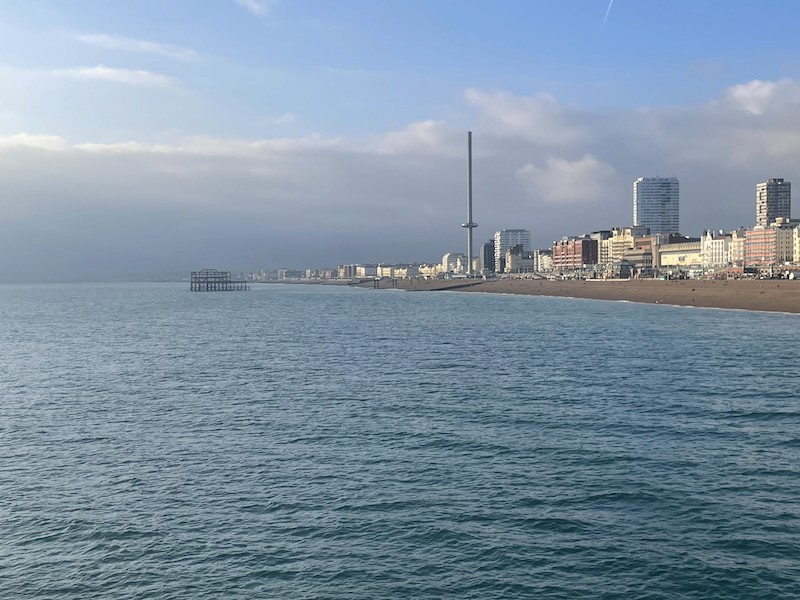Investing in Coastal Tourism Development
Apr 8, 2024

Introduction
Coastal tourism represents a powerful economic sector in the UK and Europe, contributing significantly to regional economies and employment. However, the industry faces unique challenges, from climate change to seasonality. By investing in coastal areas and pursuing innovative projects, particularly those repurposing and renovating properties, the sector can foster sustainable growth. This article explores the business case for reinvestment in coastal tourism, focusing on mixed-use real estate opportunities that rejuvenate local economies and enhance community well-being.
Economic Importance of Coastal Tourism
Coastal tourism contributes billions to the UK economy, supporting over 285,000 jobs and providing 15-20% of employment in many coastal communities. However, this reliance exposes these regions to economic risk during downturns. Initiatives like England’s Coast Path National Trail, which boosts tourism by creating one of the longest walking paths globally, demonstrate how investment in tourism infrastructure can sustain and diversify visitor demand.
The Role of Mixed-Use Real Estate in Coastal Rejuvenation
The trend of repurposing and renovating existing properties for mixed-use developments is a promising path for coastal towns. Converting former hotels, resorts, or underused facilities into multi-functional spaces (e.g., a combination of hospitality, retail, residential, and office spaces) can diversify revenue sources and attract year-round visitors. Mixed-use projects can meet the demand for sustainable, community-centric spaces while generating income for investors.
Case Study: Adaptive Reuse in Coastal Properties A notable example is the transformation of historic seaside hotels into mixed-use complexes that offer retail, office spaces, and short-term rentals. This approach preserves cultural heritage while creating vibrant centres that attract tourists, locals, and businesses. Such projects have succeeded in places like Brighton, UK, and Normandy, France, revitalising their local economies and enhancing social cohesion.
Benefits of Investment in Coastal Tourism
Economic Diversification: Investments in coastal areas create a diversified economy by reducing dependency on seasonal tourism. Mixed-use developments encourage business growth and employment opportunities beyond tourism, fostering resilience against economic shocks.
Community Development: Coastal communities benefit from improved infrastructure, access to public services, and cultural amenities. As a result, coastal tourism reinvestment aligns with broader community development goals, enhancing quality of life for residents.
Environmental Sustainability: Many coastal areas have adopted green tourism initiatives to mitigate climate impact. Investments that prioritise eco-friendly design, renewable energy, and sustainable practices can strengthen coastal regions' resilience to climate change, aligning with local government policies on sustainable tourism.
Challenges and Considerations
Seasonality and Employment: Coastal tourism is often seasonal, leading to fluctuating demand. To counteract this, investments should focus on creating year-round attractions and activities, such as wellness centres, nature trails, and cultural events.
Climate Vulnerability: Coastal regions are at risk from rising sea levels and extreme weather. Investment must consider environmental risks by integrating flood defences, green spaces, and resilient architecture into development plans.
Workforce Development: Tourism employment in coastal regions has been hit by labour shortages. Investment in training and skills development, particularly for roles in hospitality and tourism services, can support long-term growth and attract talent.
Investment Opportunities in the Coastal Sector
Real Estate Development: Mixed-use developments and refurbished accommodation are in demand. By focusing on historic or underused properties, investors can capitalise on the growing trend of adaptive reuse, aligning with both market demands and environmental goals.
Sustainable Tourism Ventures: Environmentally conscious businesses, such as eco-lodges, bike rentals, and sustainable eateries, appeal to the rising eco-tourism market. Support from local governments for green businesses can further bolster this trend.
Digital and Infrastructure Investment: Enhanced digital connectivity and infrastructure improvements, such as better public transport and energy-efficient buildings, can significantly improve the coastal tourism experience. Digital platforms that provide visitor information, event details, and sustainability tips support a thriving tourism economy.
Eblana’s Approach to Coastal Tourism Investment
Investment in coastal tourism and mixed-use real estate projects presents an immense opportunity for revitalising coastal towns in the UK and Europe. By addressing the unique challenges facing these regions and harnessing opportunities in real estate and sustainable tourism, investors can support resilient, dynamic coastal economies that benefit residents and visitors alike.
At Eblana Capital Partners we are seeking projects for redevelopment and repurposing by creating new hospitality offerings, eateries and residential mixed use developments repurposing undervalued assets and breathing life back into new coastal communities.
In the UK and Europe there is significant increase in demand for low cost and affordable housing, whilst at the same time many large legacy hotels are sitting empty. By re-developing and repositioning assets for mixed use investors can realise substantial returns on their investment over a short period of time.





